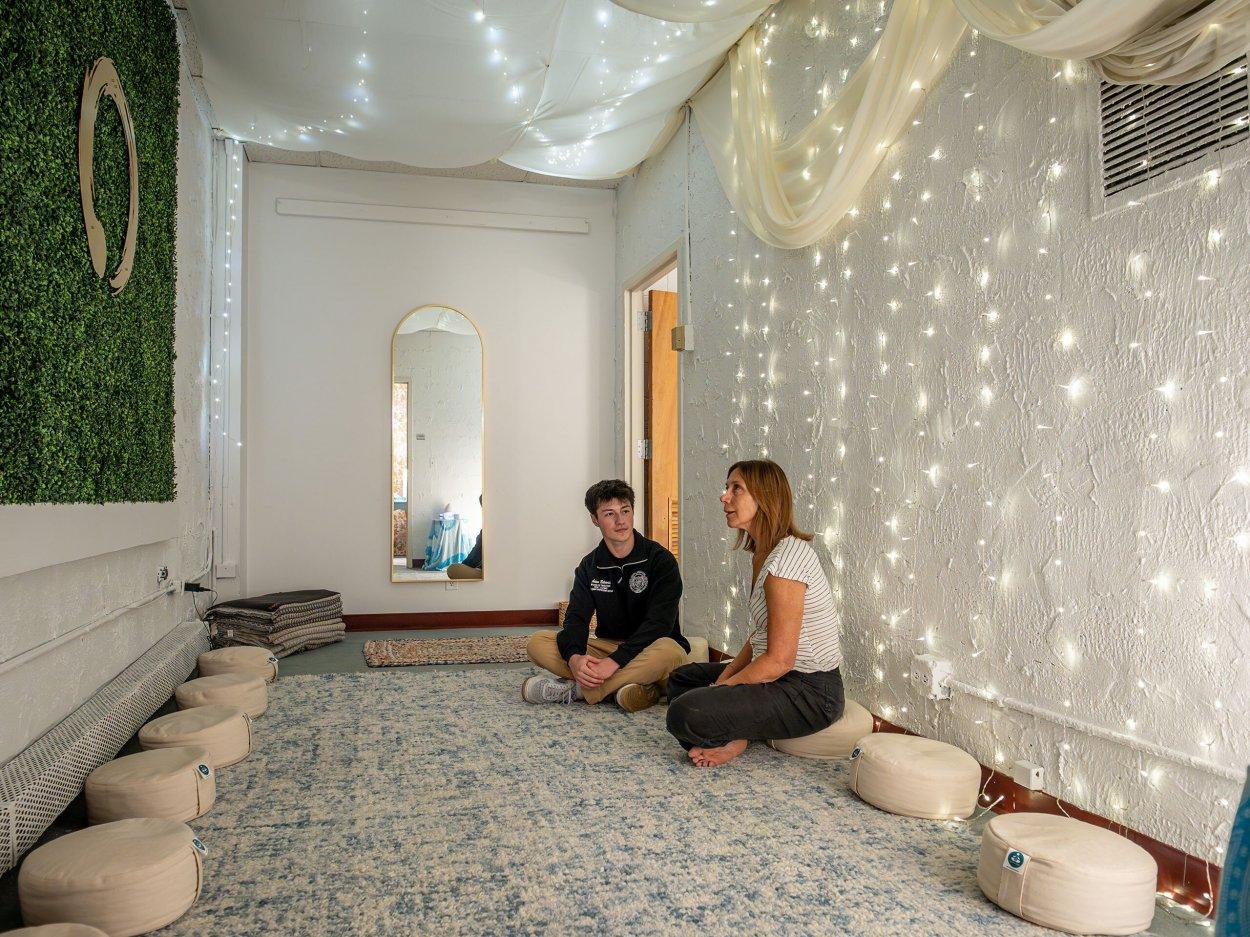In the bustling corridors of modern life, where the cacophony of deadlines, obligations, and expectations often drowns out the whispers of inner peace, the ancient practice of meditation has emerged as a beacon of hope for many. Yet, as with any beacon, it casts both light and shadow. In recent years, a spirited debate has unfolded around the role of meditation in managing real-life stress. Is it a panacea, offering a path to tranquility and resilience, or merely a temporary escape, a mental balm that soothes without healing the deeper wounds of contemporary existence? This article delves into the heart of this debate, exploring the perspectives of ardent advocates and skeptical critics alike, and seeks to uncover the truths that lie somewhere in between. Join us as we navigate the intricate landscape of meditation and its place in the ever-evolving dialogue on stress management.
Navigating the Mindful Maze Exploring Meditations Role in Modern Stress Relief
In today’s fast-paced world, the ancient practice of meditation has taken on a new guise, emerging as a popular tool for combating stress. As we delve deeper into its role in modern stress relief, several aspects stand out. Mindfulness meditation encourages individuals to focus on the present moment, fostering a sense of calm and clarity. This technique, which emphasizes awareness without judgment, has been shown to reduce anxiety and enhance emotional resilience. Yet, the question remains: is meditation a panacea for stress, or merely a part of a broader strategy?
- Individual Variability: Not all individuals respond to meditation in the same way. Personal preferences and mental states can influence its effectiveness.
- Integration with Other Practices: Many experts suggest that meditation works best when combined with other stress management techniques, such as exercise and cognitive-behavioral strategies.
- Scientific Scrutiny: While studies have highlighted the benefits of meditation, some critics point out the need for more rigorous scientific research to fully understand its impact.
Ultimately, while meditation may not be a universal solution, it offers a promising avenue for those seeking to navigate the complexities of modern stress. By fostering self-awareness and emotional balance, it can serve as a valuable component in the toolkit of stress management strategies.

From Zen Dens to Boardrooms Integrating Mindfulness Practices in Everyday Life
Incorporating mindfulness into daily routines isn’t just about retreating to serene spaces. It’s about weaving these practices into the fabric of our bustling lives. Picture the juxtaposition: a Zen den with soft lighting and the gentle rustle of bamboo, and a corporate boardroom with its rigid chairs and relentless schedules. Yet, both spaces can be fertile ground for mindfulness. The key is finding a seamless integration that allows individuals to pause, breathe, and reset regardless of their environment.
- Mindful Meetings: Start with a minute of silence to center the team, fostering clarity and reducing stress.
- Desk Meditation: Simple techniques like focused breathing or visualizations can be done without leaving your chair.
- Walking Meditations: Use lunch breaks to stroll mindfully, paying attention to each step and breath.
By embracing mindfulness in both personal and professional settings, we create a bridge between inner peace and external productivity. It’s not about escaping stress but managing it with grace and presence, transforming everyday moments into opportunities for reflection and growth.

Science and Serenity Examining the Evidence Behind Meditations Effectiveness
In recent years, meditation has been both praised and scrutinized as a tool for managing stress in our fast-paced world. While some hail it as a transformative practice that fosters inner peace, others question its tangible benefits when applied to everyday stressors. The scientific community has responded by delving into extensive research, aiming to decipher meditation’s true impact on the human psyche. Emerging studies suggest a myriad of effects, with neuroplasticity and stress hormone reduction being at the forefront of the discussion.
- Neuroplasticity: Research indicates that regular meditation may enhance the brain’s ability to reorganize itself, leading to improved emotional regulation.
- Stress Hormone Reduction: Some studies have found a correlation between meditation and decreased levels of cortisol, the primary stress hormone.
- Mindfulness and Attention: Meditation practices like mindfulness can increase focus and attention, potentially aiding in stress management.
- Critics’ Perspective: However, skeptics argue that these benefits may be overstated, suggesting that more rigorous, longitudinal studies are necessary.
As the debate continues, the intersection of science and serenity offers a fertile ground for ongoing exploration. Whether meditation serves as a panacea or a placebo remains a point of contention, but its presence in discussions about mental health is undeniably profound.

Finding Your Calm Crafting Personalized Meditation Strategies for Stress Management
In the bustling world of today, the quest for inner peace often leads individuals to explore various meditation techniques. The beauty of meditation lies in its adaptability; it can be tailored to fit personal needs and lifestyles. Crafting a personalized meditation strategy begins with understanding the different forms available and selecting what resonates with you. Mindfulness meditation encourages you to stay present and focused on the moment, while guided visualization allows your mind to journey through calming imagery. Some find solace in mantra-based meditation, where repetitive sounds or words create a tranquil environment. Embracing these techniques with an open mind can transform the way you handle daily stressors.
Creating your meditation strategy involves experimenting with different styles and durations to find what best suits your stress management needs. Here are some tips to consider:
- Set a routine: Consistency can deepen your practice, so try to meditate at the same time each day.
- Find a peaceful space: A quiet and comfortable environment can enhance your meditation experience.
- Start small: If you’re new to meditation, begin with short sessions and gradually increase the duration as you become more comfortable.
- Use technology: Apps and online resources can provide guided sessions and track your progress.
- Reflect on your experience: Keeping a journal can help you recognize patterns and adjust your strategy accordingly.
In essence, the journey to finding your calm through meditation is a personal one, requiring patience and experimentation. By developing a strategy that aligns with your unique preferences, you empower yourself to better manage stress and enhance overall well-being.
Wrapping Up
As we close the chapter on the multifaceted debate surrounding meditation and real-life stress management, it’s clear that this ancient practice continues to hold a captivating allure in our modern world. Whether seen as a timeless remedy or merely a piece of a larger puzzle, meditation undeniably invites us to pause and reflect amidst the chaos of daily life. As with any tool, its efficacy is deeply personal, shaped by individual experiences and expectations. Perhaps, then, the true value of meditation lies not in the universal promises it may or may not fulfill, but in the unique journeys it inspires. As we navigate the complexities of stress, may we remain open to exploring all avenues, finding solace in the diverse tapestry of solutions available to us. the dialogue on meditation and stress management is less about finding definitive answers and more about embracing the questions that lead us to greater understanding and peace.
